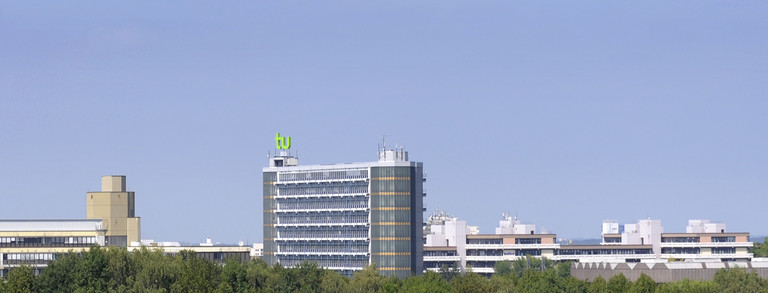Junior Research Group Develops New Processes for Renewable Raw Materials
- Top News
- Research
- Press Releases

Making products based on renewable raw materials – this is an important trend in the chemical industry. A group of researchers wants to develop innovative processes for this purpose. Dr. Thomas Seidensticker from the Laboratory of Industrial Chemistry at the Faculty of Biochemical and Chemical Engineering of TU Dortmund University, is currently setting up and leading this junior research group. The Federal Ministry of Food and Agriculture will fund the project with € 1.1 million over the next three years “with the prospect of an extension,” as Seidensticker says.
Seidensticker, who is a chemist by training, is looking for four to five researchers for his junior research group “Renewlysis”. The name was created from “renewables” and “catalysis”. From January onwards, the group will work on the project “Value Chain Oriented Development of Chemocatalytic Reactions for Upgrading Oleochemicals”. “Basically, it’s to do with shifting chemistry from petroleum, on which it has so far been based, to renewable raw materials,” says Dr. Seidensticker. In addition and as far as possible, these raw materials should not be cultivated overseas – like palm oil – but instead grow in Europe. This includes vegetable fats and oils, known as oleochemicals, which are extracted from rapeseed and sunflowers but also hemp, for example.
Renewable raw materials should replace petroleum
The aim is to transform these renewable raw materials into valuable products and to replace petroleum. “Innovative processes for manufacturing products based on renewable raw materials can make an important contribution to rendering the chemical industry more sustainable and thus more future-proof,” says Seidensticker. The main challenges facing these bio-based products – such as plastics, surfactants, lubricants and plasticizers – are how to make them available in a similar quantity as well as in the same quality as in a chemical industry based on petrochemicals. Put simply: This shift must pay off. Renewable raw materials only have a chance in the marketplace if they can compete price-wise with petroleum products.
The group led by Dr. Seidensticker is completely free as far as its research is concerned. It does not work on behalf of companies or for them. That was a precondition for receiving the grant notification from the Agency for Renewable Resources (FNR), the central coordinating agency in the area of renewable resources in Germany, on behalf of the Federal Ministry of Food and Agriculture. “However, our research results will undoubtedly be integrated into chemical companies’ production processes,” forecasts Dr. Seidensticker.
Raw materials from vegetable fats are very promising
The independent junior research group Renewlysis is therefore dedicated to researching innovative technological approaches for the production of bio-based products, such as chemicals, plastic precursors or additives for cosmetics. In addition, it is working on ways to optimize manufacturing processes for chemical pre-products. Especially unsaturated oleochemicals, that is, raw materials from vegetable fats and oils, are highly promising for the manufacture of sustainable products. To date, catalytic processes for oleochemicals have typically been developed and tested using selected starting materials as model compounds. “We want to change this because in nature, mostly mixtures of different fatty acids are found. This must be taken into consideration from the very outset when developing new processes.”
For Dr. Thomas Seidensticker, the use of renewable raw materials has been a “matter close to his heart” for years – not only in research but in teaching too. He started studying chemistry at TU Dortmund University in 2007. During his doctoral studies from 2013 to 2016, he received a two-year grant from the Chemical Industry Fund (FCI). In 2016, he earned his doctorate in the working group of Professor Arno Behr at the Faculty of Biochemical and Chemical Engineering. Together they wrote the text book “Einführung in die Chemie nachwachsender Rohstoffe”, which this year was awarded the Chemical Industry Fund’s literature prize worth € 10,000. It will be published in English at the end of the year under the title “Chemistry of Renewables: An Introduction”.
Contact for further information:





![[Translate to English:] Partner Four hands are holding the green logo of TU Dortmund University](/storages/tu_website/_processed_/1/d/csm_Partner_Nicole_Rechmann_KW_40b35bb3fd.jpg)




![[Translate to English:] Forschung An apparatus with tubes in a laboratory](/storages/tu_website/_processed_/0/c/csm_Forschung_Juergen_Huhn_cbd34afd6d.jpg)
![[Translate to English:] Studium Five students are sitting in a lecture hall. They are talking to each other.](/storages/tu_website/_processed_/c/9/csm_Studium_FelixSchmale_81d94adc86.jpg)





